Required reading for 'Free Speech 101'
Greg’s list of the best books on free speech & free speech history
Modern First Amendment case law is unique in the entire world for its strength of speech protection, and in my opinion it remains the best thought-out meditation on how to have free speech in the real world. But it didn’t arise from nowhere — it grew over time as a result of a free speech culture.
Here is a list of my absolute favorite books on freedom of speech ever written. It's a great journey through history, law, epistemology, and the story of human freedom. I whole-heartedly recommend and hope you enjoy each one.
From the ancient world until today: “Free Speech: A History from Socrates to Social Media,” by FIRE Senior Fellow Jacob Mchangama (2022). This book is, in my experience, completely unique and truly international. Mchangama's book is a fantastic expansion of his work on “Clear and Present Danger,” a FIRE-sponsored podcast. The book and podcast eloquently demonstrate that free speech has been a recurrent issue for human society all across the globe since the dawn of civilization. Without contributions like this, it’s easy to come away with the impression that free speech is primarily just a concern in, say, the Netherlands, the U.K., and the U.S.
…And with that caveat, let’s get back to the list, which is overwhelmingly about the state of free speech in just the U.S.!
Free Speech in the modern day: “The Constitution of Knowledge: A Defense of Truth,” by Jonathan Rauch (2021). In what I believe was the most important book of 2021, Jon creates an absolutely worthy follow-up to “Kindly Inquisitors” (a book that also appears later on this list), which focuses on the modern crises facing our knowledge-producing industries — particularly higher education and journalism — and makes a winning case that, despite appearances, despite our intuition, and despite our confidence, the world around us is and forever will be deceptively difficult to understand. (Read my full review here.)
Britain and the U.S. colonies in the 17th century: "Mere Civility: Disagreement and the Limits of Toleration," by Teresa M. Bejan, (2017). This underappreciated book not only did a wonderful job introducing the world — and me — to the ancient Greek concepts of isegoria and parrhesia, but also proposes an unlikely champion, or model, for American free speech: The uncompromising and cantankerous Puritan, Roger Williams, founder of Rhode Island. It sounded unlikely to me, but Bejan makes a great argument that the U.S.’s more expansive notion of freedom of speech goes waaaay back.
18th century France and Britain: "A Wicked Company: The Forgotten Radicalism of the European Enlightenment," by Philipp Blom (2012). An absolutely wonderful read, and a lesson in how vibrant society can still be in a strong free-speech culture — even if the laws are outright hostile to freedom of speech and you could even risk going to jail for making the wrong arguments.
Early 19th century United States and the Civil War: "Free Speech, The People's Darling Privilege," by Michael Kent Curtis (2000). I will never stop recommending this book, and hereby demand an audio version. In this book, Michael Kent Curtis expertly makes the argument that free speech in the United States did not die due to the fact that the First Amendment had very little legal meaning up until about 1925. He shows how a commonly held belief in freedom of speech protected and sustained free speech, at least in the non-slaveholding states, up until the Civil War.
“On Liberty” (Chapters 2 & 3) by John Stuart Mill (1859). The earliest document cited here is the most influential work on free speech in history. It is extremely important to remember, though, that John Stuart Mill was very clear that he was primarily arguing about the conformist state of Victorian English culture, and otherwise thought the law in England at the time was fairly protective of freedom of speech. If you'd like a beautiful and more easily-digestible version, check out Heterodox Academy's “All Minus One,” which is an illustrated collection of many of Mill's free speech arguments from On Liberty.
Free speech since the Palmer Raids: “From the Palmer Raids to the Patriot Act: A History of the Fight for Free Speech in America,” by Christopher M. Finans (2008). While the vision of a free speech culture has always held the right of the people to expression over the power of the government to censor it, our execution of that vision has never been perfect. It has been particularly bad when challenged during war. With an eye for anecdote and detail, Finans recounts the oscillations between government censorship and free expression through periods including the first Red Scare, the labor movement, the opposition to Vietnam, and the reaction to that opposition.
"The Great Dissent," by Thomas Healy (2013). An exceptional book on how a cultural and growing intellectual belief in freedom of speech (championed by great thinkers like Learned Hand and the socialist intellectual politician Harold Laski) persuaded Justice Oliver Wendell Holmes to finally reinterpret the First Amendment to mean something in the real world, after well more than a century of legal toothlessness.
"Defending My Enemy," by Aryeh Neier (1979). Aryeh Neier was a Jewish refugee of Nazi Germany who rose to become the executive director of the ACLU — a role he held during the seminal case National Socialist Party of America et al. v. Village of Skokie, in which Neier defended the rights of American Nazis to march in a Chicago suburb with a large Jewish population. For this act of courage and principle, Neier was condemned by people of all political stripes, and the ACLU lost 30,000 members. “Defending My Enemy” is his thorough and persuasive justification for the case. It still absolutely bears reading after events like Charlottesville back in 2017, as it answers the questions that civil liberties advocates will continue to be asked into perpetuity: “Do we really need to defend the rights of Nazis?”
“Free Speech for Me—But Not for Thee,” by Nat Hentoff (1992). Everyone who knew Nat was crushed by his loss in 2017. A titan of free speech advocacy in addition to being a prolific jazz critic, this book is as good an introduction to him as any. In 1992, Nat was already making the argument that censorship is a universal reflex shared by the left and right, and that it takes work to overcome it. That’s an argument you’ll be very familiar with if you’ve read much of my or FIRE’s work, and a lot of that is Nat’s influence.
“Kindly Inquisitors,” by the aforementioned Jonathan Rauch (1993). I tell people that Mill’s "On Liberty" is the best thing ever written about freedom of speech. I usually follow that up with “But ‘Kindly Inquisitors’ is the best thing written about free speech since Mill.” While the book contains immense wisdom on any number of topics, with respect to Cancel Culture you should pay special attention to his treatment of the fatwa against Salman Rushdie (notably a signatory of the infamous Harper’s Letter.) (My full review here.)
“The Tyranny of Silence,” by Flemming Rose (2014). Though it may turn some people off that this was written by the editor who published the infamous Mohammed cartoons, Rose comes off as an incredibly thoughtful political liberal who simply believed there was nothing special about any religion that meant it couldn’t be poked fun at, in accordance with the old Danish tradition. An underappreciated book that everyone must read, it includes some of the best and most thorough arguments I’ve seen that the Weimar Republic did, in fact, have something akin to hate speech codes; Nazis were jailed under them; and it was a huge PR success for the Nazis (FIRE Senior Fellow Nadine Strossen also did a great FIRE video addressing this canard, which is called “The Weimar Fallacy”). This is an important argument, as many of the leading advocates of censorship still cite things like the rise of the Nazis as justification for modern speech codes.
“Dangerous Ideas: A Brief History of Censorship in the West, from the Ancients to Fake News,” by Eric Berkowitz (2021). Berkowitz’s astounding book is a comprehensive, entertaining historical account of censorship in the West, from Ancient Greece to the present. It does an especially good job highlighting the class dynamics of censorship — including the Streisand Effect and censorship imposed by elites for the “benefit” of the poor. To be fair, I do have some reservations about the last chapter, which I feel gives too much credit to the arguments made by academic speech skeptics, but the book is still a triumph I will be reading again and again. (Read my full review.)
“The Mind of the Censor and the Eye of the Beholder: The First Amendment and the Censor’s Dilemma,” by FIRE Chief Counsel Robert Corn-Revere (2021). Corn-Revere follows the evolution of America’s free speech culture from the nineteenth century to the present, starting with the infamous Anthony Comstock. Comstock was a moral crusader who was indirectly responsible for a surprising amount of America’s free speech movement. “Mind of the Censor” recounts how Comstock once pursued a man for over a year, in a chase involving seven cities in three countries, because the offender sold Comstock a single condom. Ever the charmer, Comstock bragged about hounding several of his targets to suicide. But he was an unlikely and unwitting ally to free speech in the long run.Despite himself, Comstock arguably did more to inspire our eventual understanding of the First Amendment than any other individual of his era, forcing his opponents to think harder about the parameters of free speech and the often impossibility of separating sex from politics.
Extra Credit: For those overachievers out there, if you want to get a much earlier perspective on free expression, check out John Milton’s “Areopagitica” (1644), and John Locke’s “Letter Concerning Toleration” (1689). I would have listed them earlier, but the 17th century prose in these tomes is not for everyone.
This post was adapted from a previously published article on FIRE’s website, originally drafted with the help of Ryne Weiss and Adam Goldstein.
Shot for the Road
Let’s once and for all put to rest the tired (and inaccurate!) cliché that “You can’t yell, ‘Fire!’ in a crowded theater.” (Yes, this is an encore appearance for this video on ERI, but I just love it so much and it's so on-topic that I thought I would just share again.)





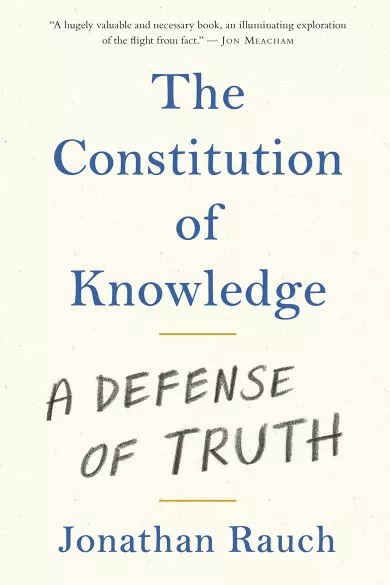

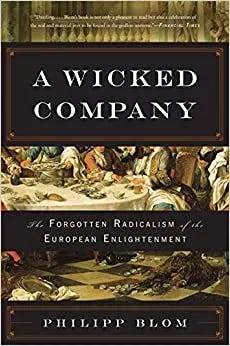
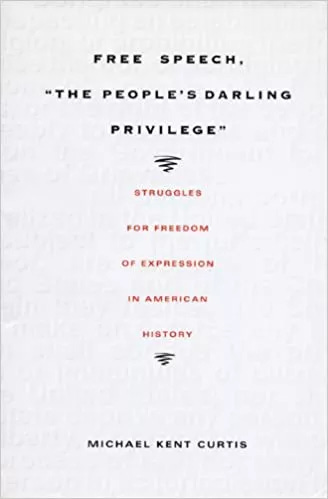

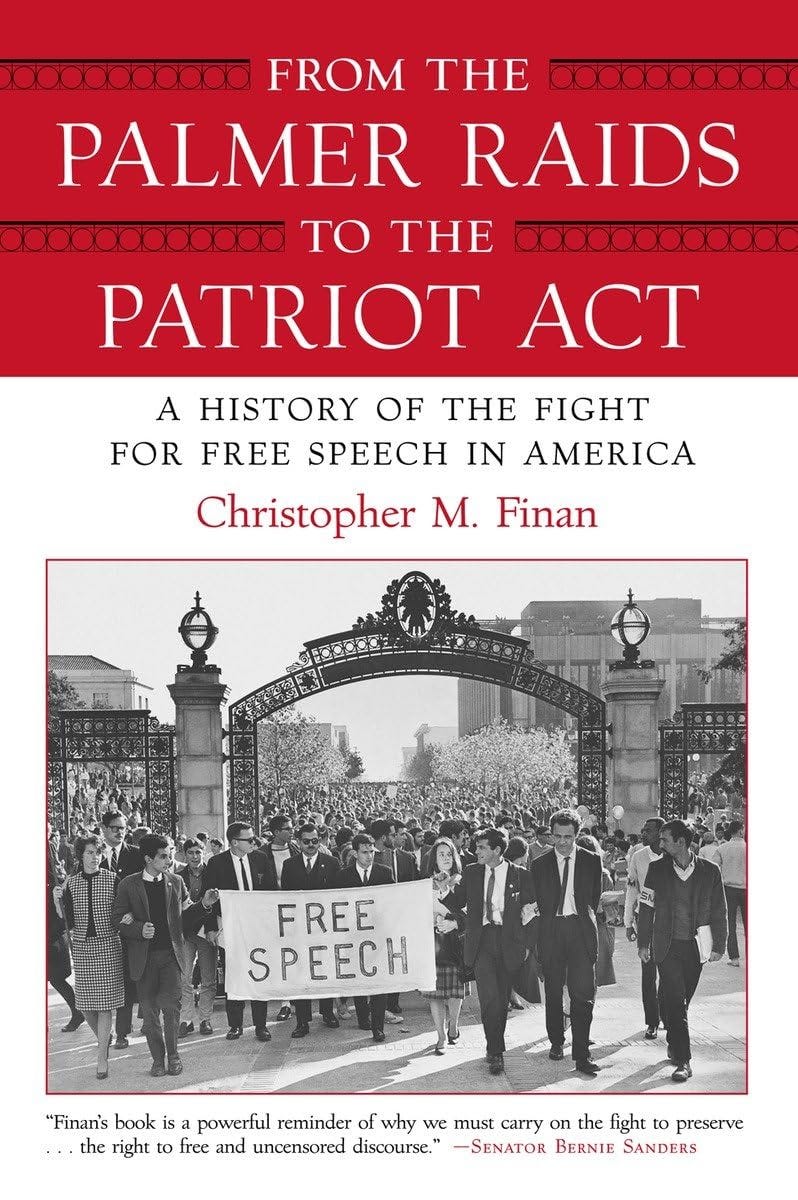




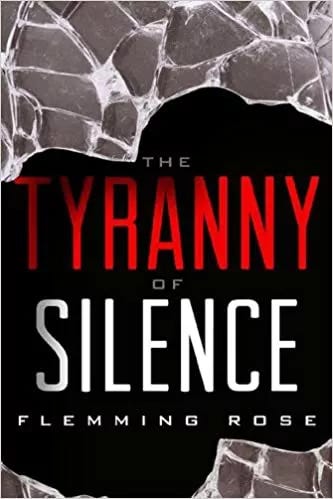
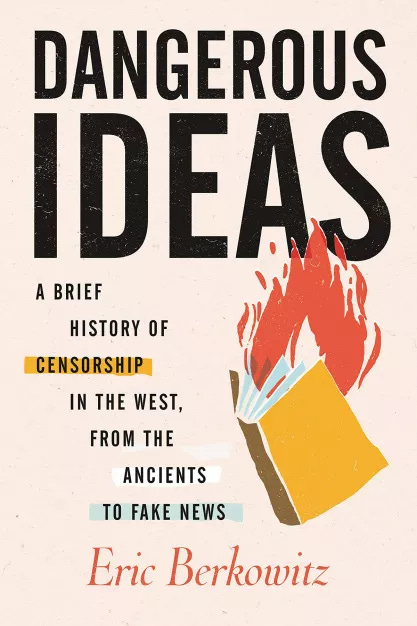

I’d also recommend works by those who’ve lived through the systematic suppression of their speech - writers like Havel’s The power of the powerless, Milosz’s The captive mind, Grossman‘s Life and fate, Solzhenitsyn, etc
You chose wisely Greg, particularly by placing Jacob Mchangama’s book in first place. He is the reason that I became a FIRE member. I chanced upon him while at the gym running on the treadmill. He was on a panel discussing (or debating) free speech. In any event, I was blown away by his calm demeanor and erudition. I looked him up when I got home and discovered his podcast Clear and Present Danger.
I have listened to it several times, particularly The Totalitarian Temptation episodes. Obviously, I needed to read the book, several copies of which I have given to friends.
He writes in a style that is easily readable by anyone, unlike Mill, who is beyond the reading skills of the average person today.
Thank you for the list. I look forward to expanding my understanding.